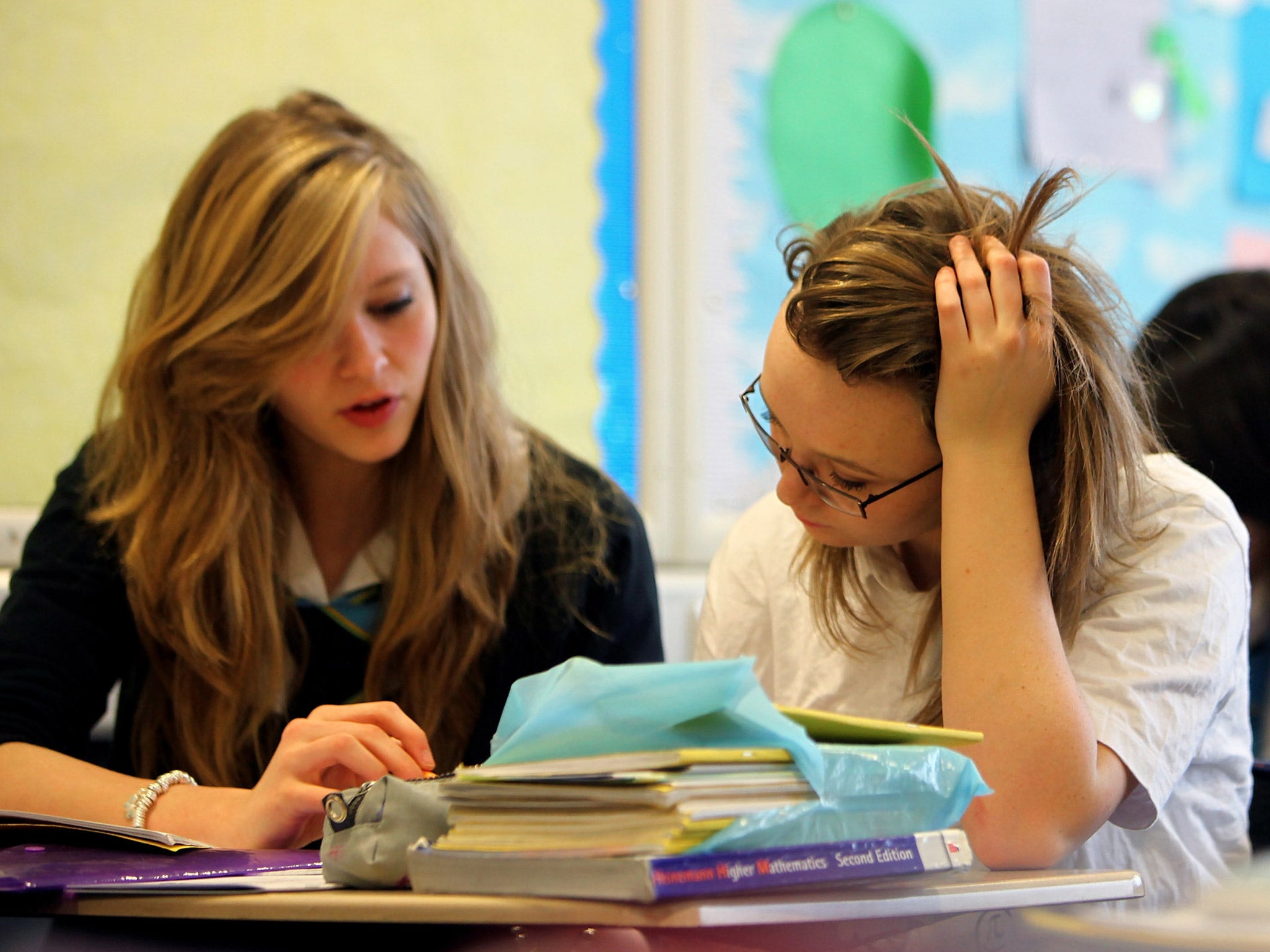Gender gap in UK schools means girls' lack of confidence in maths and science puts them off applying for engineering jobs

Your support helps us to tell the story
From reproductive rights to climate change to Big Tech, The Independent is on the ground when the story is developing. Whether it's investigating the financials of Elon Musk's pro-Trump PAC or producing our latest documentary, 'The A Word', which shines a light on the American women fighting for reproductive rights, we know how important it is to parse out the facts from the messaging.
At such a critical moment in US history, we need reporters on the ground. Your donation allows us to keep sending journalists to speak to both sides of the story.
The Independent is trusted by Americans across the entire political spectrum. And unlike many other quality news outlets, we choose not to lock Americans out of our reporting and analysis with paywalls. We believe quality journalism should be available to everyone, paid for by those who can afford it.
Your support makes all the difference.Girls lack confidence in their ability in maths and science and are therefore put off from applying for jobs in engineering and computing, a new study from the Organisation for Economic Co-operation and Development (OECD) shows today.
Figures show maths is the only subject where they still lag behind boys and that the lowest performing girls in the UK are six years behind the average pupil in Shanghai, China, by the time they reach the age of 15.
Also, in terms of degree awards, 76 per cent of those in education-related subjects go to girls while only 19 per cent and 23 per cent in computing and engineering are awarded to women.
As a result, the gender gap in terms of career choices was alive and well in the UK, the report stated.
“Many girls choose not to pursue careers in science, technology, engineering and mathematics because they do not have the confidence to excel in mathematics - despite having the capacity to do so,” concludes the report.
Andreas Schleicher, deputy director of education and skills at the OECD, criticised the way maths was taught in the UK - saying lessons in the UK concentrated on solving simple problems without attempting to get pupils to understand the underlying concepts, as happened in high performing Asian countries.
Girls in the UK who were in the lowest quarter of performers fared worse in maths tests than the average for the OECD - scoring 367 points compared with 375 which put them behind Mexico in the tables.
When quizzed, only 40 per cent of UK girls said they would be likely to pursue a career that involved maths - compared with 50 per cent of boys.
“When they think about science, they think more about health related professions - when boys think about science they think about engineering and computer related professions,” Mr Schleicher added.
He said he had visited a careers convention earlier in the day which had included a presentation by a female electrician, adding that he had heard one girl say: “I didn’t think you could become an electrician if you are a woman.”
Join our commenting forum
Join thought-provoking conversations, follow other Independent readers and see their replies
Comments